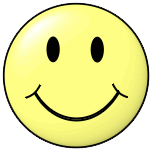Here’s a counterintuitive one: If you want to avoid having a fulfilling career (the point of our class, after all), determinedly chase happiness. Now wait a minute, you must be thinking, isn’t chasing happiness a good idea? Isn’t it written into our Declaration of Independence? Isn’t it a fundamental goal in our society?
Well, yes, but it shouldn’t be. At least not the way we practice it.
You see, we go about chasing happiness all wrong in America, and in most Western countries. The more we chase it, the less happy we are. Witness the drop in happiness over time, of which your generation has borne the brunt.
That’s because there are three routes to happiness and we tend to focus on only one of them. The route we usually pick doesn’t relate to life satisfaction. Instead it makes us keep wanting more.
Here’s the down and dirty:
- When we talk about wanting to be happy, we usually mean we want to feel pleasure. Feeling good is the end goal. To feel good in our society, though, we typically need money so we can buy things (big house, new car, iEverything) and experiences (vacations, pedicures, sporting events, concerts). And having some fame or status doesn’t hurt, either (the Kardashians experience their fair share of pleasure, don’t they? Well, when they're not sobbing over staged divorces and the like). These goals that are outside of us – extrinsic goals – tend to make us feel less satisfied with life and more anxious. No matter how much pleasure we experience, we always adapt to what we have and want more. Psychologists call this the hedonic treadmill.
- You could instead chase happiness by entering a state of “flow” as frequently as possible. Flow is what you experience when you lose track of time and become disconnected from the world around you. Like when you’re, say, aimlessly surfing the web. We experience flow when we’re doing something we enjoy AND that we’re good at. So if you make the time to figure out your skill sets and your interests, you can forge a career – and hobbies, and relationships – where the two converge. People who do this have higher life satisfaction; it’s an effective way to chase happiness. That said, it sounds like a lot of work, doesn’t it? Identifying your strengths? Zeroing in on your interests? Reshaping your life around these? Ugh. Who has the time? If you’re thinking this way, you’re a Career Avoidance 101 superstar indeed.
- Finally, you could seek out a sense of meaning, a feeling that you’re doing something bigger than you. This isn’t a popular route in our ego-crazed society, of course. I mean, who wants to take the time and energy to look beyond themselves? Not only that, doing something meaningful often means hard, even painful, work. You often have to forgo pleasures in the day-to-day throes of the work. Like how I was up at 2am the other night while my daughter screamed for no discernable reason for the 10th night in a row, and I thought, My God, there is no pleasure in this. 25 months of sleep disruptions. I forget what solid sleep feels like. I’m going to go fricking insane. Fricking, fricking, fricking insane. I then proceeded to shout this at my unsuspecting, heretofore-snoozing husband. Is raising a child meaningful work? Absolutely. The trudging, on-the-ground reality of it is not “fun” at all, though. To be sure, the meaningful route to happiness is not what our society portrays as “happiness." It's not all I found my purpose and know what I'm meant to do with my life and now my life is full of rainbows and puppies and fields of glowing yellow sunflowers!!! Hell no. Seeking meaning will piss you off at times. Royally. But the people who manage to do it, who actually work toward happiness through meaning, they’re more satisfied with life, and they even tend to live longer and have fewer health problems. Worth it? You decide.
All in all, it’s easy to chase happiness in an unproductive – even harmful – way. Simply do what society has taught you to do since the moment you were born: shop your way to happiness, seek out pleasurable experiences at all costs, and focus on big fat ol’ YOU. It’s hella appealing, isn’t it?
Or you could take the hard road. And actually be happy.
If you think you’ve got the guts for the latter (you’re intent on failing this class, aren’t you?!), then start by taking some questionnaires offered by UPenn’s Martin Seligman. These are research-based, psych-tested questionnaires, not some weirdo surveys written by doofuses who want to trick you into spending money to get your “results.” The UPenn questionnaires not only tell you about yourself – such as your strengths (the VIA Survey of Character Strengths), the route to happiness you use (Approaches to Happiness Questionnaire), and your life satisfaction (Satisfaction with Life Scale) - they also tell you how you compare to the thousands of people who have taken the questionnaires (my current pleasure rating? 12th percentile. Woo hoo, parenting a toddler!) and can track your progress over time. For free.
And here’s some reading/watching to do. This isn't self-help crap. It's real psych. Promise.
Assignments:
Authentic Happiness: Using the New Positive Psychology to Realize Your Potential for Lasting Fulfillment by Martin Seligman, PhD. 2003. Free Press.
Stumbling on Happiness by Daniel Gilbert, PhD. 2007. Vintage.
Flow: The Psychology of Optimal Experience by Mihaly Csikszentmihalyi, PhD (these are the moments I'm so glad this class is online and not in front of the classroom because there I would butcher that name if I had to say it aloud). 2008. Harper.
To Watch (available streaming on Netflix):
Happy by Roko Belic. 2011.
This Emotional Life, hosted by Daniel Gilbert, PhD. 2010. (Watch it all - it's great - but if you're pressed for time, dive right into Episode 3.)
Be happy (Photo credit: Wikipedia)

